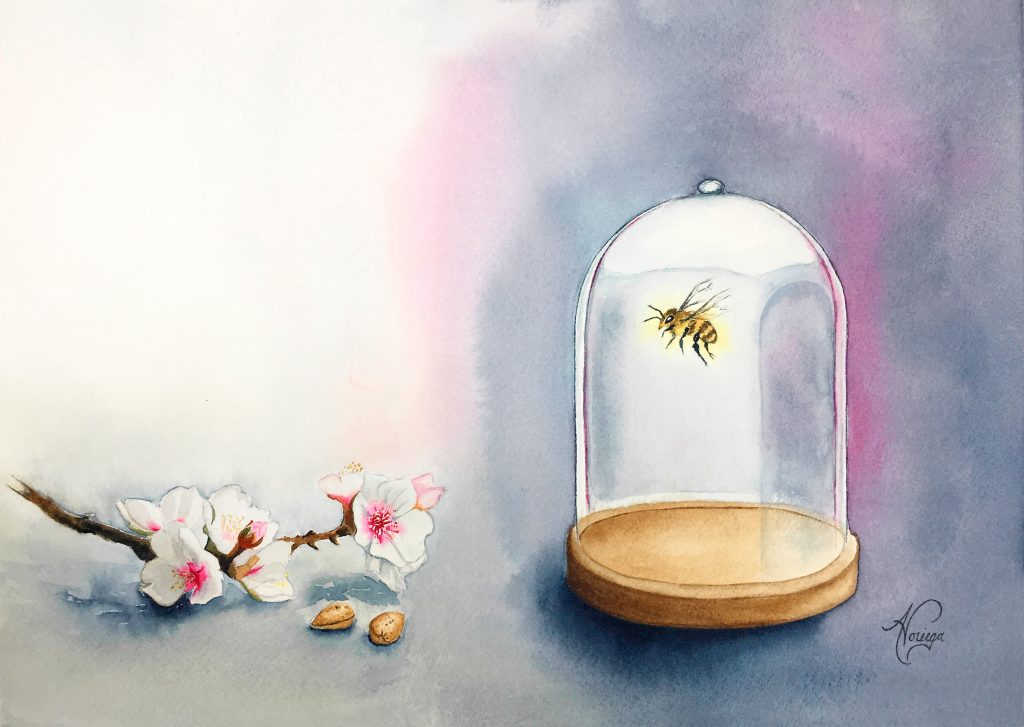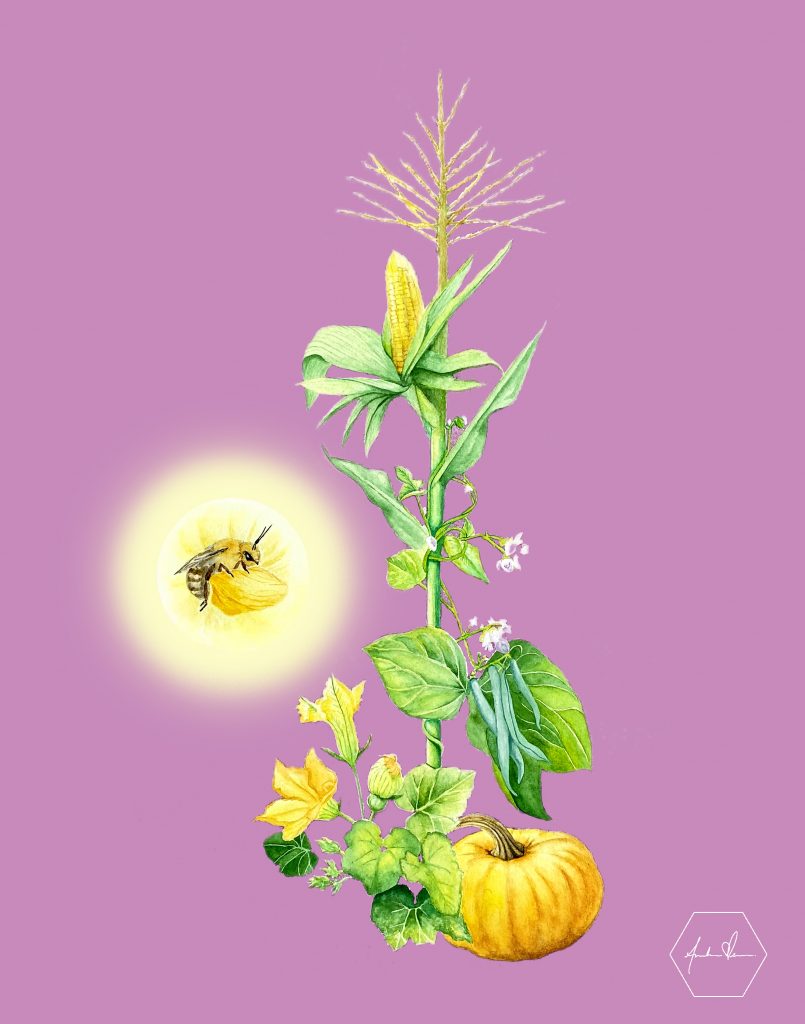Creative: Poems for Pollinators
Andrea Elena Noriega
Honoring Relationships and Companions
Artist’s Statement
We need to view creatures like bees not as objects (i.e., commodities and labourers) but as subjects (i.e., living beings).[1] Their status needs to be elevated from the caste system that privileges human beings over non-human animals. I believe that they, like other beings, should be regarded as persons, giving them rights that acknowledge their individuality and protect them from torture, illness, injury, enslavement, and death.
Indigenous teachings provide an epistemological framework for interspecies relationships, one that lateralizes the food system and provides reciprocity.[2] Non-human beings in the Euro-Westernized world are starting to be seen through anthropomorphism, allowing us to perceive the intrinsic commonalities of all living beings. This means seeing ‘nature’ as having the emergent potential[3] (a collective force) for sentience and consciousness.[4] It also means trying to understand the lived experiences of other beings, and affording them the empathy, compassion, and deference we aspire to show to other human beings.
Similarly, Indigenous ontologies offer highly progressive and advanced models for our daily attitudes and conduct toward other creatures. Implementing such an ethos within Euro-Western spaces of practice (such as farming and agriculture) can serve to enhance the overall outcomes of human actions, including improved yield, sustainability, diversity, and collective affect.[5]
Honey and Almonds
The banality of evil resides in the idiosyncratic,
it is, woefully, the little choices made.
The existence of one may take the existence of another,
but must that also entail an indentured servitude?”
With so many gifts from la Pachamama,
it seems, then, belligerent to steal, hoard, or take prisoner any of her iterations
Sweet honey, a gift
Nourishing almonds, a gift
Bees busily producing, an honor to all of nature,
not, indeed, an invitation to oppress and exploit
Entitlement to gifts, disposable commodities, transactional, and disposable, incites a banality that does give rise to evil, but also to complacency, willful ignorance, and a regime of husbandry that is not an inherent right.
Release the bees; let them give gifts, not sacrifices

Honoring Relationships and Companions
Independent we fall, united, we . . . grow
Sturdy and reliable, I am corn
Nimble and giving, I am beans
Cool and protective, I am squash
A whisper from the wind, or visit from the Cucurbita bee brings new life
Together, entangled,
we bring to each other that which we cannot bring for ourselves alone.
We owe strength and resilience to the relationships we have
We flourish because of the championship, not in spite of it

References
Johnson, S. 2001. Emergence: The connected lives of ants, brains, cities, and software. New York: Scribner.
Kimmerer, R. 2013. Braiding Sweetgrass. Minneapolis, MN: Milkweed Editions.
Nimo, R. 2015. “The Bio-Politics of Bees: Industrial Farming and Colony Collapse Disorder.” Humanimalia 6(2).
Stewart, K. 2007. Ordinary Affects. Durham: Duke University Press.
Wohleben, P. 2015. The Hidden Life of Tress: What they feel, how they communicate—Discoveries from a secret world. Vancouver: Greystone Books.
a branch of philosophy focused on the theory of knowledge, specifically its nature and origin; the processes and structures of making knowledge.
the capacity for emergence to occur.
a branch of philosophy concerned with the nature of being, reality, and existence; the substance and meaning of a given context.
an embodied experience of impact, related to the ways in which living things perceive, feel, and sense interaction with other living or non-living things.
